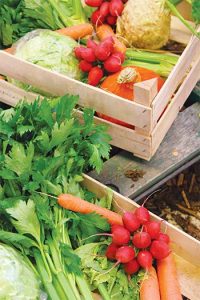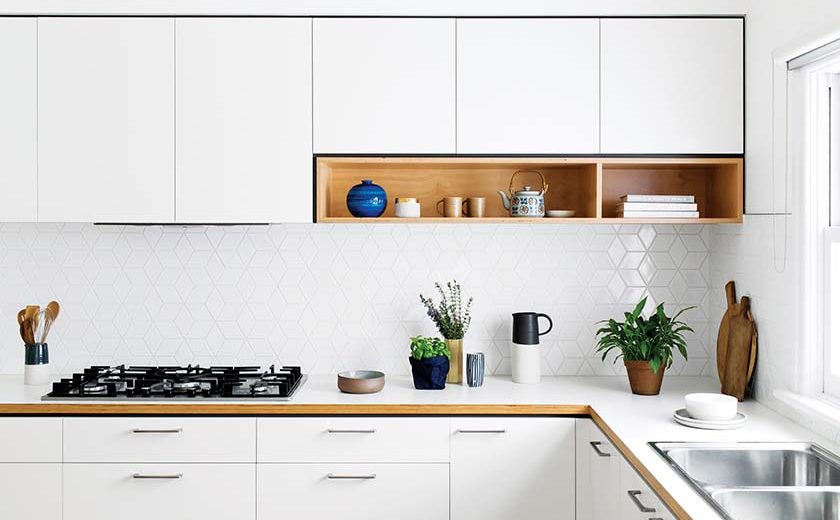If you’ve been looking for ways to make your house more energy-efficient and waste-conscious, look no further – your kitchen is a wonderful place to start.
You don’t have to remodel your kitchen to make it eco-friendly and spend more money. In fact, you can try these 8 easy ways to get a green kitchen now. Besides, you’ll be surprised by the instant result.
Phase out plastic containers
More and more studies are connecting certain plastics to health problems, with No. 3 (PVC) and No. 7 plastics that contain bisphenol A (BPA) raising the most warning flags. BPA is also found in many plastic takeout containers. No. 6 plastics (polystyrene, also known as Styrofoam) also leach chemicals into food and drink. While Nos. 1, 2, 4, and 5 plastics are considered safer options, it is recommended to store your food in glass containers, and choosing a stainless steel reusable water bottle for bringing beverages on the go.
Vent a gas stove
Some cooks claim nothing beats making a meal on a natural gas stovetop. That may be true, but cooking with natural gas can also release high levels of nitrogen dioxide into your home–some studies have shown the kitchen is the place where humans are most often exposed to this type of pollution. If you’re in the market for a gas stove, look for a model equipped with pilotless ignition–no need to have a pilot light constantly burning. It’s also important that your stove have an exhaust fan that ventilates to the outside. If you haven’t already done so, ask the company that installed your stove to check the kitchen air supply, to make sure pollutants aren’t being drawn back into your house. If you don’t hire a certified technician to install your fan, at least consult with one to make sure your air supply is OK.
Clean greenly
We all like to keep our kitchens and the toilets sparkling, and the good news is, the safest homemade cleaning products also tend to be the cheapest! Forego harsh cleaners that claim to be anti microbial/antibacterial or disinfectant. They often contain chemicals that can irritate your lungs, eyes, and skin, and some have been found to contain carcinogens. For washing dishes, avoid detergents whose labels read like chemistry books and look for plant-based cleaners with no artificial fragrances. Look for a brand that has your family and Mother Earth at heart.
 Stop bugs safely
Stop bugs safely
With all the suppers and snacking going on in kitchens, there are bound to be some crumbs left behind–a natural invitation for ants and other pests. To keep things bug-free, clean up after preparing a meal, and put things like cereals, candy, and pet food in glass or metal sealable storage containers.
Check your water
For extra protection, or if you don’t like the taste from the tap, look for NFS-certified home water filters. Make sure you have your water tested at least annually to make sure it’s free of harmful bacteria, viruses, and chemicals. If necessary, choose a water filtration system based on the test results.
Eat safer fare
Food serves as the centrepiece of our kitchen, the thing that brings us all together. To keep the safest choices on hand, choose organic whenever you can. Pesticides commonly used in conventional agriculture contain about 180 hormone-disrupting chemicals that studies have linked to diabetes, Parkinson’s disease, developmental problems, and even cancer. Buying organic also means you’re not putting genetically modified food on the table.
Consider your pots and pans
Teflon and other nonstick pots and pans contain PFOA, perfluorinated chemicals that some studies have linked to fertility problems. If you already have this type of cookware, cook things on low heat, avoid scratching it, and when it’s time to buy replacements, look for unseasoned cast iron, stainless steel, or glass products.
Clean your hands, clean your food
Outbreaks of foodborne illness, including salmonella and E. Coli infections, remind us that our food supply may not be as safe as we think it is. A 20-second plain-water rinse will get rid of some bacteria, but for better protection make your own natural cleaning concoction.
Mix 1 tablespoon lemon juice, 2 tablespoons distilled white vinegar, and 1 cup cold tap water in a spray bottle, shake well, and apply to your produce. Rinse with tap water before cooking or serving. Also remember to wash your hands before handling or preparing food; plain soap and hot water work as well at killing germs as soaps labeled “antibacterial.”


